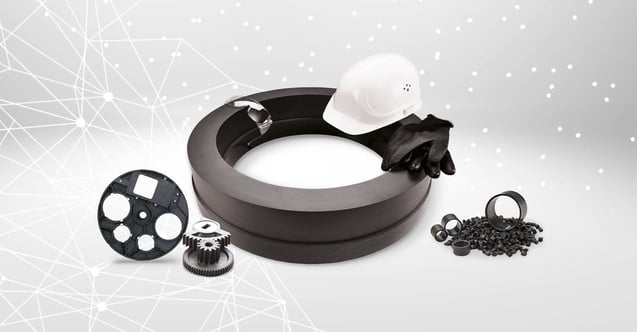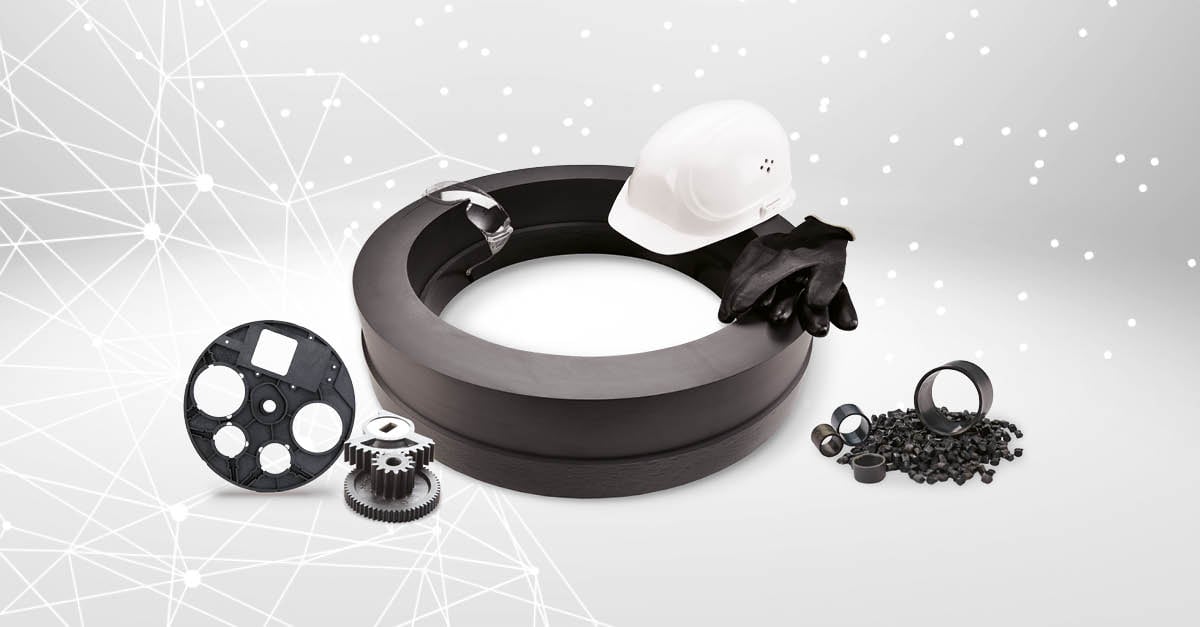Tribological plastic compounds: Infinitely specific.

What at first sounds like squaring the circle, however, ultimately describes "only" the work of a really good plastics compounder: to always condense the unique, specific solution for the respective requirement from an almost unlimited number of potential solution options/tribological plastic compounds. Namely, exactly the plastic compound that contributes significantly to a convincing intermediate or end product - from all decisive points of view. Since these products are mostly invisible in everyday life, we will focus on them here today: The different areas of application for tribological plastic compounds.
Application area number 1 for tribological plastic compounds: the automotive industry
In few other sectors of industry is the range of requirements for tribological plastic compounds as broad as in the automotive industry. All efforts are always subject to very high requirements: The spectrum ranges from emission or fuel reduction to increased comfort or cost reduction to reduced mass moments of inertia and reduced noise emissions.
Here, tribological plastic compounds provide the basis for a range of components such as:
- Sunroof guide elements
- Gearshift forks
- Thrust washers
- Pistons for oil pumps
- Impellers for fuel pumps
- Gears for actuators
- Plain bearing
Case study 1: Gearshift forks
Gearshift forks transmit gearshift movements - which a driver exerts on the selector lever - to so-called sliding sleeves. As a rule, these transmission shift forks consist of a large number of metal parts. The cooperation between the Dutch group Royal DSM, the German system supplier CarNaTrix (a company of the KOKI Group) and the LEHVOSS Group has developed a transmission shift fork based on a high-performance PPA reinforced with carbon fibers as an alternative.
This fork version (see illustration) not only meets all the requirements placed on it in terms of strength, rigidity (even at high temperatures), oil resistance and tribology (due to contact with metal) - it also impresses above all with a reduced number of components, reduced costs and reduced weight.
Case study 2: Fuel pump impeller
High precision in the thousands of a millimeter range, maximum fuel resistance, good mechanical and tribological properties and clear system cost advantages are offered by this injection-molded fuel pump impeller based on the plastic compound LUVOCOM 1301-7896.
Case study 3: Gearbox for exhaust gas management
The requirements placed on actuators for flaps in exhaust gas management are high: on the one hand, they should function reliably; on the other hand, they are exposed to ambient temperatures of up to over 150 degrees Celsius and cannot/should not be lubricated externally in the process (either because it is not possible or - to ensure freedom from maintenance - because it is not desired). One solution is the LUVOCOM compound based on PA 46 reinforced with carbon fibers and incorporated lubricants.
Application area number two for tribological plastic compounds: machine and plant construction
The requirement profiles of mechanical and plant engineering often differ significantly from those of the automotive industry. Here, passing extensive material tests, successful certification processes, a very long material and component service life are important issues. In addition, there is a wide range of different applications/processing: From extrusion to compression molding to 3D printing. Here, customized tribological plastic compounds - specifically selected on the basis of many years of application experience - provide the basis for a range of components: From plain bearings, connecting rods and carriers for optical lenses to support rings and seals.
Case study 4: Plain bearings
Using, for example, LUVOCOM compounds based on PEEK, PPS or PA 66 (with carbon fibers and lubricants), plastic plain bearings ensure low friction values, low wear and reliable dry running. In addition, they are corrosion- and maintenance-free and save weight and costs compared to material solutions made of metal.
Case study 5: Optical lens carrier
Using, for example, LUVOCOM compounds based on PEEK, PPS or PA 66 (with carbon fibers and lubricants), plastic plain bearings ensure low friction values, low wear and reliable dry running. In addition, they are corrosion- and maintenance-free and save weight and costs compared to material solutions made of metal.
Case study 6: Support ring for seals
In the oil and gas industry, for example, the plastic compound LUVOCOM EOG based on PEEK with carbon fibers - processed by compression molding to form back-up rings in sealing packages - is used. This high-performance compound meets the highest requirements in terms of strength and toughness, high temperature and chemical resistance, and good gap extrusion resistance at great depths.
Application area number three for tribological plastic compounds: medical technology
In addition to the numerous areas of application for polymer materials in general (these include, for example, orthoses, endoscope handles, wound retractors or even sterilization containers), the tribological plastic compounds in particular are of course also used in areas where particularly high sliding friction properties are required - as in the case of wheels and sliding bearings for hospital beds, for example.
Application area number four for tribological plastic compounds: the sports and leisure industry
Superior mechanical properties, low weights, durability, high performance and, above all, unique design possibilities are some important requirements for tribological plastic compounds in the sports and leisure segment. Handles of all kinds are among the classic applications here - as are fishing reels, for example.
Conclusion: Tribological plastic compounds offer an almost infinite range of applications
Tribological plastic compounds work behind the scenes - in forms and functions that a) hardly anyone sees and b) hardly anyone knows about. Equipped with properties that are, in turn, "worth seeing". If you as a designer or engineer want to tap into these potentials and make them usable for your research, development and/or series production, it is best to turn to a compounder who will accompany you along the entire path.
To a compounder who knows where the material comes from, who can think in dimensions of +/- 4 µm, who can guarantee worldwide material availability and the necessary support for all required testing and processing. In short: a compounder like the one you will find at LEHVOSS.

